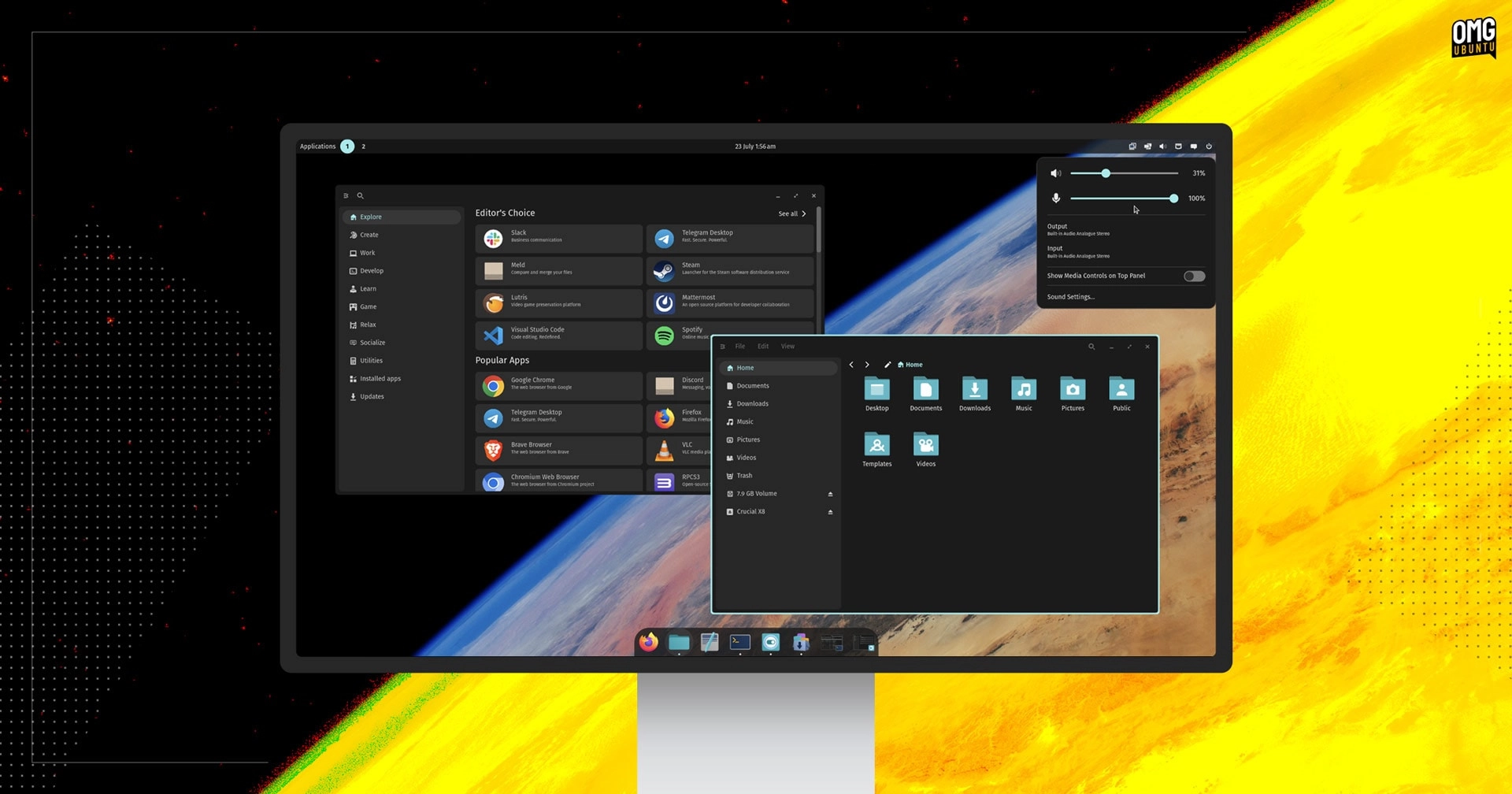You’ve heard about System76’s new COSMIC desktop environment, you’ve seen screenshots and video clips of it, but now it’s time for you to go hands-on, and take it for a test flight.
Yes, the first alpha COSMIC desktop environment is out, as the Pop!_OS 24.04 alpha available to download — which naturally is preloaded with the COSMIC DE and a cabal of brand new core apps.
Pop!_OS 24.04 sits atop the same technical underpinnings as Ubuntu 24.04, but the similarities end there.
System76 applies a considered set of modifications and adaptations of its own, opts for newer Linux kernel and graphics drivers, bundles a different set of software (and no snaps), and debuts its new Rust-based desktop environment, compositor, greeter, and core app suite.
I’ve been testing the Pop!_OS 24.04 alpha with COSMIC for the best part of a week. As it is an alpha, bugs, quirks, missing, and incomplete features, etc., should be expected. That said, even with the alpha tag, everything runs well for daily driver usage.
Which is pretty incredible.
System76’s engineers have, in the space of just over two years, built an entirely new desktop environment, compositor, UI toolkit, theming system, core apps, and more, all from scratch.
Which makes the COSMIC ‘Epoch 1’ alpha all the more encouraging: System76 was able to get from nothing to this level of functionality in a couple of years, imagine how good it could be in a few more!
COSMIC replaces GNOME Shell and the various ‘Pop Shell’ GNOME Shell extensions previous versions of Pop!_OS use, but this Rust-based revamp remains close to the UX/UI that went before.
This familiarity with the GNOME-based incarnation of the Pop Shell experience is entirely by design. Why fix what isn’t broken? Instead, System76 has chosen to reimplement the core UX but, it’s no longer an ‘add-on’, able to extend, expand, and embrace new features.
As such, COSMIC looks nearly identical: dock at the bottom, bar at the top, the ability to enable automatic window tiling, an OSD app picker, text-based app launcher, vertical workspaces, and so on.
COSMIC is Wayland-first, but you can run X11 apps via XWayland. The compositor supports fractional scaling, NVIDIA hybrid graphics, and other efforts.
But COSMIC Epoch 1 also brings plenty of ‘newness’ to the fore too:
- New design language and theming
- Comprehensive theming system with shareable themes
- Option for horizontal workspaces
- Customisation of dock and top bar
- New core apps, including file manager, terminal, text editor
- New Settings app and Pop Store software hub
The theming capabilities are fairly broad, but only affect COSMIC and its native apps using the libcsomic/iced toolkit. Regular GTK/Qt/Electron/etc apps stick with the standard Pop GTK theme (dark brown).
“`html
The COSMIC desktop is not exclusive to Pop!_OS. Today’s alpha release can be packaged by and made available in other distros (indeed, talk of an official Fedora COSMIC spin is underway).
“This alpha release puts COSMIC in the hands of Linux developers and maintainers so that they can see what COSMIC can do for their users, and help them achieve the experience they set out to create,“ the company say.
“System76 is excited to see COSMIC integration elevate Linux as a whole, and all the intriguing custom distros and features that come from making UX-building more accessible.”
“`
COSMIC Epoch 2 will be the second official release, slated for around a year from now, and will include additional features like touchscreen support. In the meantime, there’s still plenty to be added to Epoch 1, including accessibility features, a frosted glass effect, and more settings.
Bugs, quirks, incomplete features, placeholder settings, and a general lack of QA testing and polish should all be expected — it is an alpha. Don’t rush to make snap judgments about COSMIC based on using this build. You’ll get a more rounded picture by the time of the beta.
A few quirks I noticed: some changes don’t persist or aren’t retained between boots, including keyboard layout (I add a UK layout, reboot, and it’s gone); Bluetooth status (I turn it off, reboot, and it’s back on); screen brightness (always at max on reboot), and so on.
Again: it’s alpha; these aren’t functional dealbreakers.
But if you’re willing to ride the bleeding edge, then honestly: download it, put it on a USB stick, try it out (it works okay in a virtual machine but it flies on real hardware).
Go grab a copy and let me know what you think!
